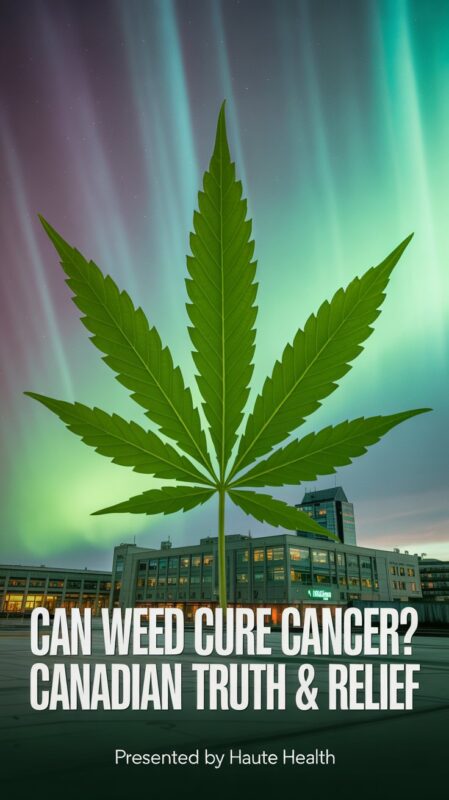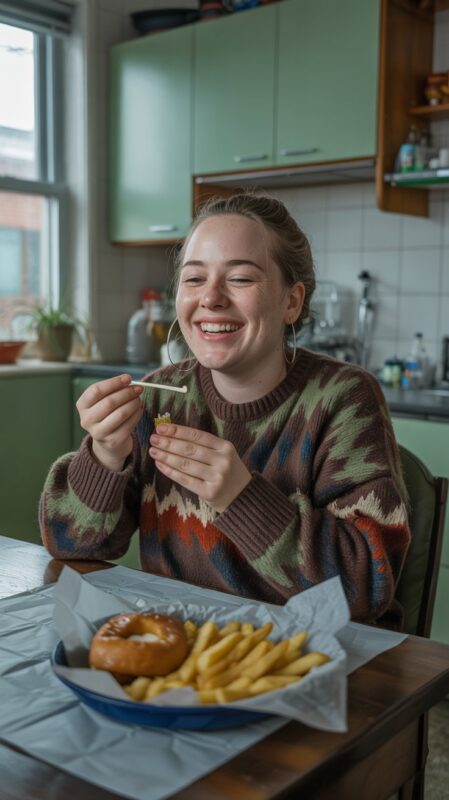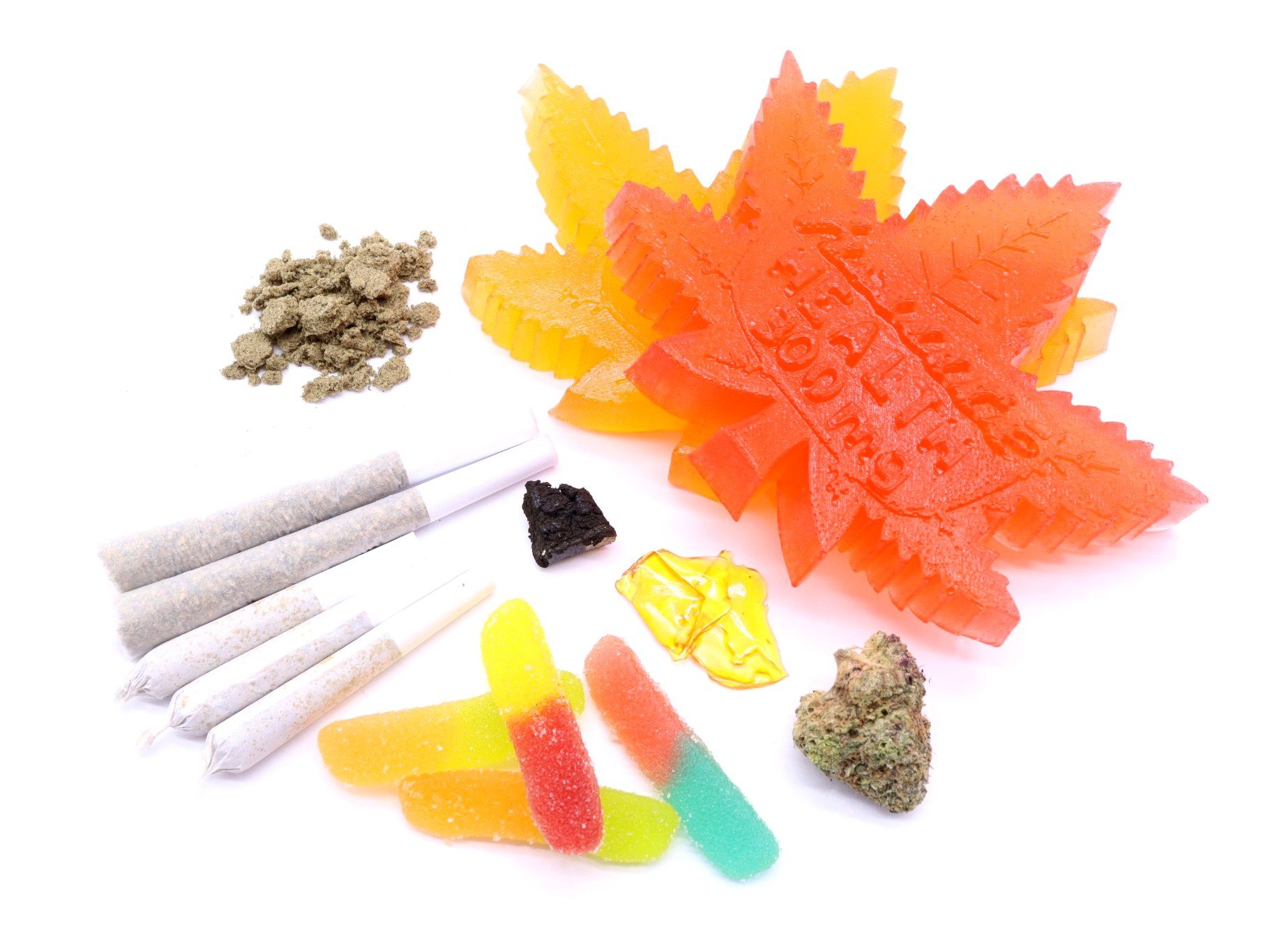
Can Weed Cure Cancer? The Great Canadian Buzz or Bust?
What’s the deal, does weed actually cure cancer?
Let’s clear this up faster than a Leafs playoff run: weed does not cure cancer. Not today, not tomorrow, not unless your oncologist moonlights as Snoop Dogg.
Here’s what science has so far:
-
Petri dish wins. Cannabinoids have slowed tumour cells in labs.
-
Mouse miracles. Some tumours shrank when THC or CBD was tested on rodents.
-
Human proof. None. Zip. Nada.
It sounds exciting, but mice are not people. If they were, Edmonton would have 20 Cups by now. Lab results are great for funding, but not enough to rewrite oncology textbooks.
Cannabis is like a rookie prospect on the Canucks. Tons of hype. Big potential. Might one day be a star. But you wouldn’t hand them the Cup today. Until large-scale human trials show real results, weed is support, not salvation.
So no, doctors in Canada aren’t prescribing “two joints and call me in the morning.” They’re cautiously optimistic, curious, but not reckless. Science takes time. Weed is still trying out for the team, not calling the plays.
Bottom line: promising potential, but not a cure. Yet.
If it’s not a cure, what does weed actually do for people with cancer?
This is where cannabis takes centre stage. Cancer treatment is brutal. Chemo, radiation, surgeries—it’s like your body’s hosting a demolition derby, and you’re the car.
Weed doesn’t cure, but it makes life during treatment way less miserable. Ask Canadian patients and you’ll hear the same things:
-
Pain feels duller. Joints, oils, or edibles make aches fade into the background.
-
Nausea chills out. THC is like a backstage pass out of barf-town.
-
Appetite roars back. Suddenly poutine, KD, and Timbits all look Michelin-star worthy.
-
Sleep finally happens. No more staring at the ceiling until sunrise.
That’s not “miracle cure” territory, but it’s life-changing. You don’t fight cancer by starving and stressing. You fight by eating, sleeping, laughing, and sticking to treatment.
Real talk: the Canadian Cancer Society notes cannabis helps with symptom relief, but not as a cure. At Haute Health, we’ve seen how it restores normalcy—turning endless misery into something more human.
Bottom line: weed makes cancer treatment survivable.
What’s the difference between THC and CBD in all this?
Think of THC and CBD as Canada’s most underrated duo. Not the Tragically Hip, not the Sedin twins, but close.
-
THC is the wild one. It’s the chemical that gets you high, hungry, and convinced you’re a genius for inventing “deep-fried ketchup chips.” In cancer care, THC helps with pain, nausea, and appetite.
-
CBD is the chill sibling. It doesn’t get you high, but it calms anxiety, tames inflammation, and helps with sleep.
-
Together they create the “entourage effect.” Science says cannabinoids work better as a team, not solo acts.
Patients often find relief with balanced products. Too much THC? Anxiety city. Too much CBD? Feels like drinking decaf. Together? Sweet spot.
At Haute Health, we get tons of questions like “Should I go CBD-only?” Short answer: maybe not. For cancer-related symptoms, blends often do more. THC keeps you eating, CBD keeps you chill.
Bottom line: THC = appetite and buzz, CBD = calm and balance. Both together? A power play that makes the ride smoother.
Is smoking weed safe during cancer treatment?
Classic image: roll a joint, light up, exhale like you’re in a Snoop video. But if your body’s already battling chemo, smoking is not the smartest move.
Here’s why:
-
Combustion irritates lungs.
-
Cancer already taxes your system.
-
You want symptom relief, not extra damage.
Better formats exist:
-
Vapourizers at low temps (smooth, gentle).
-
Oils under the tongue (steady, reliable).
-
Capsules (boring but effective).
-
Edibles (delicious but sneaky—pace yourself).
Doctors across Canada are consistent: use weed for comfort, but pick cleaner forms. Joints are nostalgic, but not medical.
The Canadian Institute for Health Information tracks cannabis use and shows edibles and oils are increasingly popular for patients. At Haute Health, we recommend knowing your dose before you chow down on gummies. Nobody wants a surprise “why is the fridge breathing?” moment.
Bottom line: skip smoke, stick to cleaner delivery methods.

How do Canadians even get medical weed for cancer?
Good news: Canada nailed the system. No shady dealers named Kyle in a Tim Hortons parking lot. Just legit, regulated access.
The steps are simple:
-
Doctor visit. They assess if cannabis might help.
-
Authorization. This is your golden ticket.
-
Register with a licensed producer. Pick wisely, like drafting a hockey team.
-
Delivery to your door. Oils, capsules, flower, labelled with THC/CBD levels.
Thousands of Canadians use this route. Stats from Health Canada show cancer-related symptom relief is a major driver of medical use.
Bonus: medical cannabis can be tax-deductible. Imagine sending CRA a bill for kush. Peak Canadian moment.
For more on lifestyle balance, check our Haute Health blog on weed vs booze. Spoiler: booze loses.
Bottom line: Canada makes medical cannabis safe, legal, and accessible.
Why do so many people still believe weed is a cure?
Because the internet is one giant rumour mill. One mouse study turns into “weed cures everything” posts shared by Aunt Karen, then reposted by that one guy you unfollowed after high school.
Why it sticks:
-
People crave hope.
-
Chemo is brutal.
-
Pharma distrust runs deep.
-
Weed already feels miraculous for daily stress.
But here’s the truth: oncologists in Canada are not ditching chemo for kush. The Canadian Cancer Society is clear—relief, yes. Cure, no.
At Haute Health, we love a good laugh, but even we can’t spin science. Weed myths are fun to share, but not worth betting your health on.
Bottom line: myths spread faster than truth, but the facts are clear. Weed helps, but it isn’t a cure.
If it’s not a cure, why should we still be excited about weed in cancer care?
Because life is more than survival. It’s about quality of life.
Patients using cannabis often report:
-
Food tastes amazing again.
-
Nausea doesn’t control the day.
-
Sleep returns.
-
Pain is manageable.
-
Laughs and conversations come back.
That’s massive. Cancer treatment isn’t just about shrinking tumours. It’s about keeping people strong enough to endure the process. Weed supports that strength.
Research keeps evolving. At the same time, patient stories across Canada prove cannabis is already improving lives. You don’t have to wait for a miracle headline—you can feel the benefits now.
For extra laughs with learning, check our Haute Health blog on CBD myths. Weed may not save the world, but it makes living in it a lot easier.
Bottom line: weed isn’t a miracle, but it’s a game-changer for quality of life.
FAQs
Does marijuana cure cancer?
No. Studies show potential, but no human cures yet.
Is CBD oil legal for cancer patients in Canada?
Yes. Available through medical programs.
Can weed replace chemo or radiation?
No. It helps with comfort, not treatment.
What strains help with nausea?
Canadian classics: Pink Kush, God Bud.
Is medical cannabis covered in Canada?
Sometimes. Private insurance may cover part.
Do Canadian doctors support it?
Yes, more every year—for symptom relief.
How do I choose the right format?
Oils, capsules, and edibles are safer than smoke. Talk with your care team.
Final Take: Miracle or munchie?
Weed is not a cure. But it’s the teammate cancer patients need. It doesn’t score the winning goal, but it sets you up to keep skating.
At Haute Health, we’ll never sell you miracle cures. What we do offer is the truth, with a laugh on the side. Weed makes cancer treatment easier, funnier, and more livable. That’s worth more than a Leafs Cup parade—because let’s be real, that’s not happening anytime soon.
Bottom line: no miracle, but a mighty munchie with real power.


